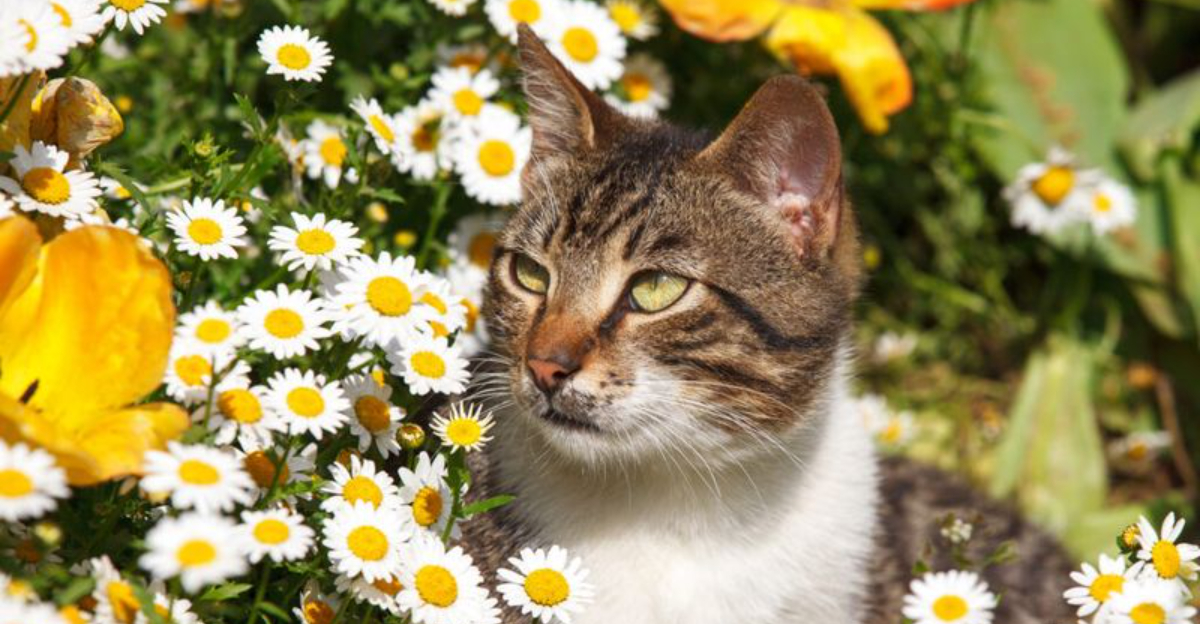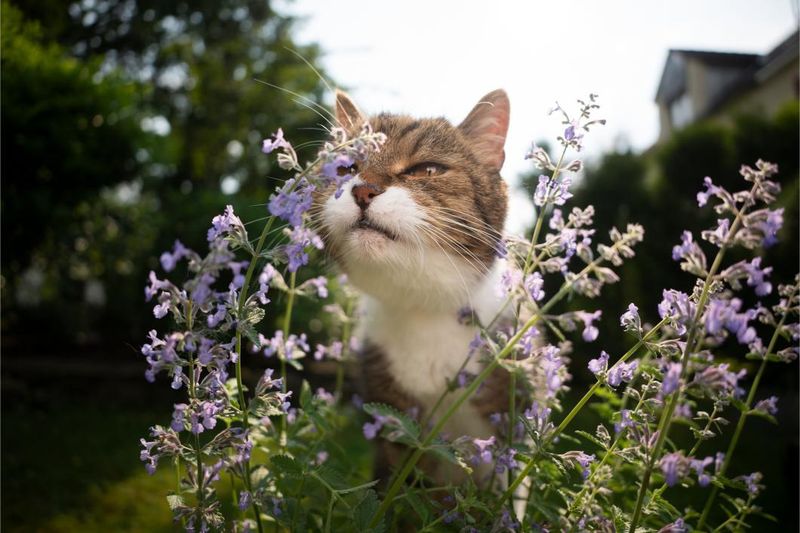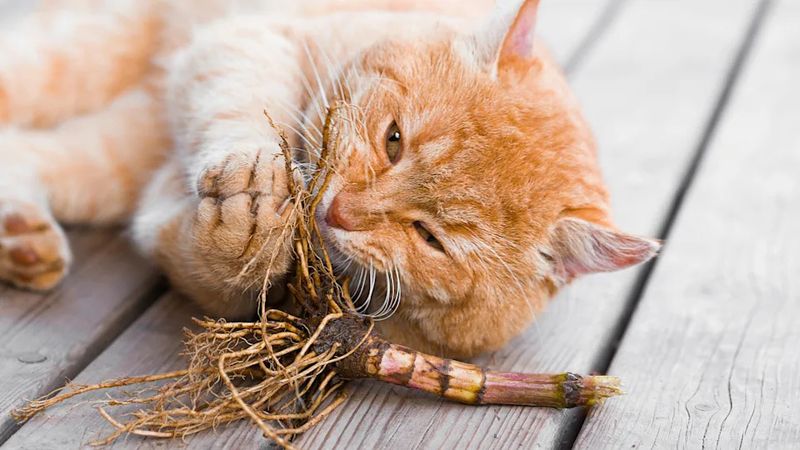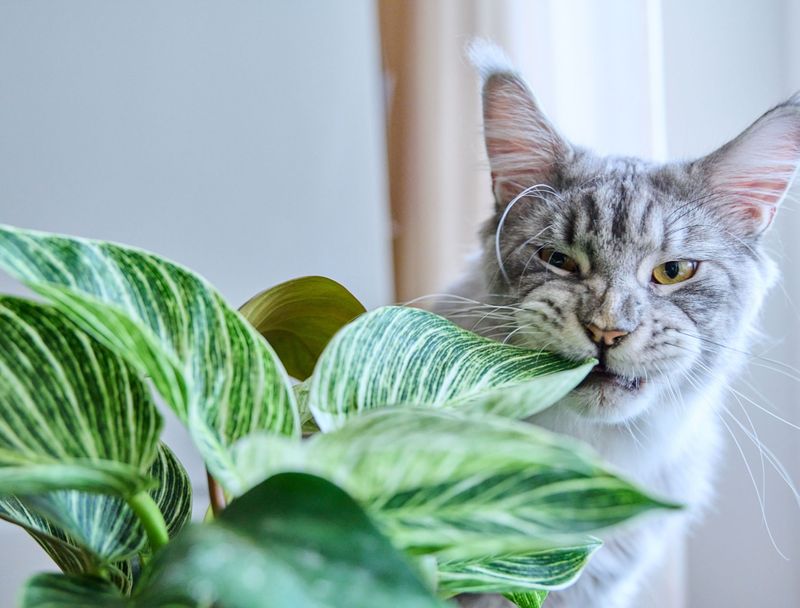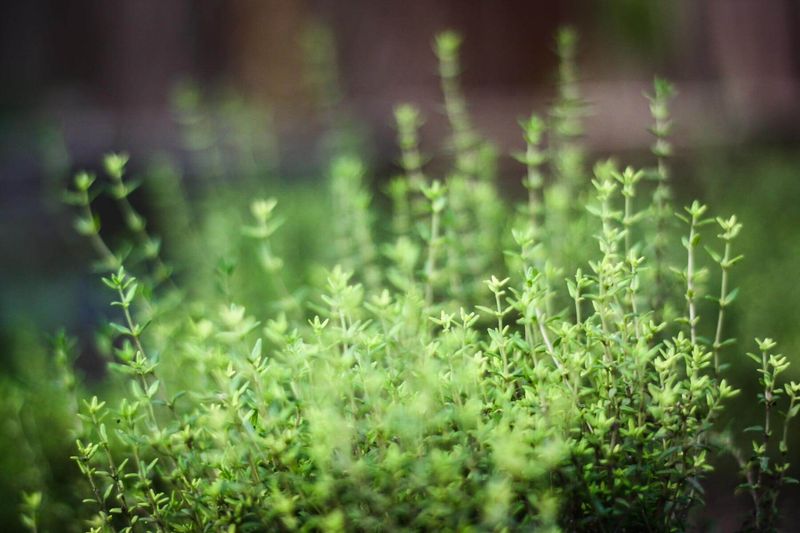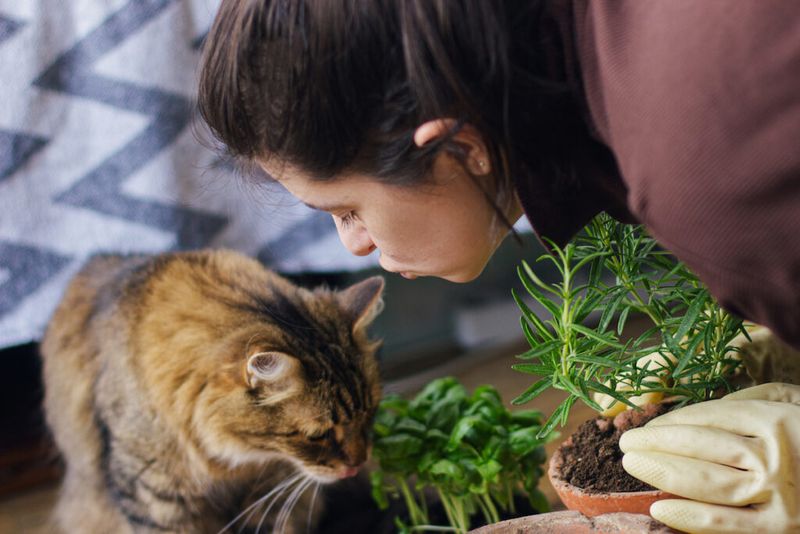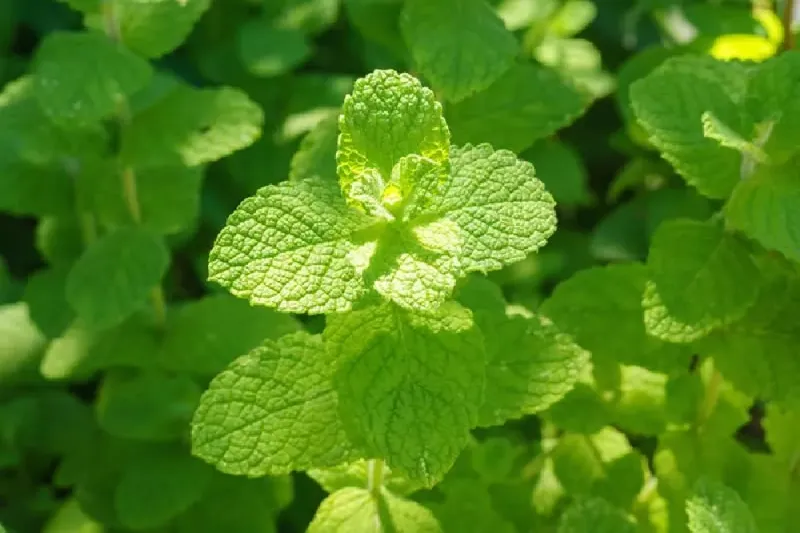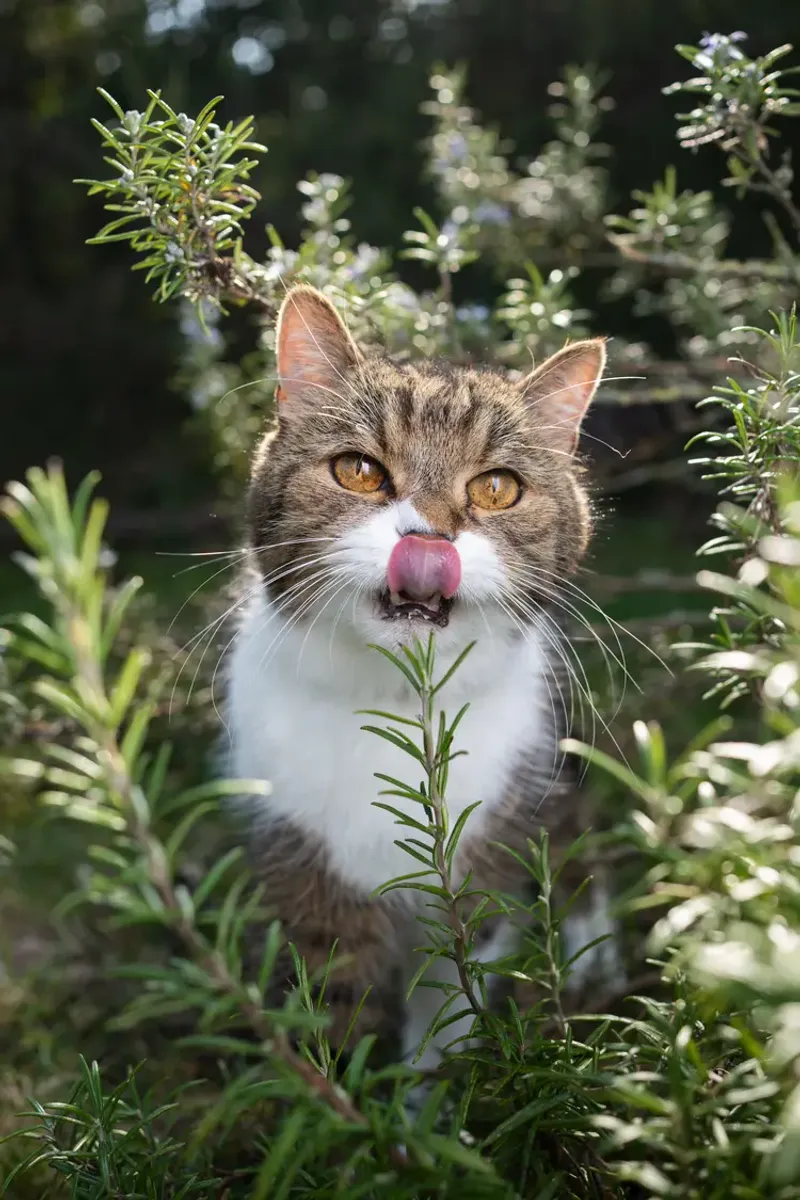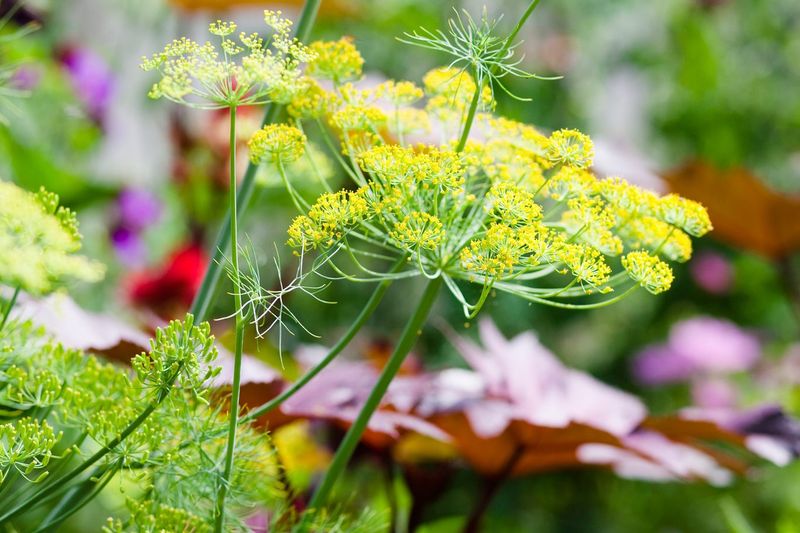📖 Table of Content:
Growing herbs at home not only enhances your cooking but also enriches your indoor environment. For cat owners, selecting herbs that are safe for your feline friends is essential. Here are ten herbs that are not only beneficial for your kitchen but also safe for cats, ensuring a harmonious coexistence.
1. Catnip
Did you know that catnip, or Nepeta cataria, is a feline favorite? Its aromatic leaves release nepetalactone, a compound irresistible to many cats. Grown indoors or out, catnip thrives in well-drained soil with ample sunlight. While not all cats respond to its intoxicating effects, those that do will enjoy a gentle euphoria. Surprisingly, humans can also use catnip in teas for a calming effect. With its heart-shaped leaves and delicate pink flowers, catnip is an attractive addition to any cat-friendly herb garden. Just be prepared for your feline friend to linger nearby!
2. Valerian
Valerian is not just for humans seeking relaxation; it’s also a delight for cats. This tall, flowering plant, known for its sedative properties, can excite felines. When grown in a sunny garden or a pot indoors, valerian offers both visual appeal and aromatic allure. Cats often nibble on its leaves or roll in its vicinity, drawn by its earthy scent. Historically, valerian has been used to treat insomnia and anxiety in people. For cats, it provides a similar calming influence, making it a dual-purpose herb that’s perfect for pet owners.
3. Lemongrass
Lemongrass, with its citrusy aroma, is a staple in many cuisines, but it also serves as a playful treat for cats. This tropical plant can be grown in pots, bringing a touch of the exotic indoors. Cats are often attracted to its scent and may chew on the leaves, which is perfectly safe. Beyond the kitchen, lemongrass acts as a natural insect repellent, making it doubly useful. With its slender, arching leaves, it adds elegance to your indoor or outdoor herb garden, and offers a delightful sensory experience for humans and cats alike.
4. Parsley
Parsley isn’t just a garnish; it’s a nutritious herb safe for cats. Rich in vitamins A, C, and K, parsley supports healthy immune function. Cats enjoy nibbling this leafy green, which can also help freshen their breath. If you decide to grow parsley, ensure it receives plenty of sunlight and regular watering for lush growth. For humans, parsley adds flavor and nutrients to dishes. Its vibrant green leaves and compact growth make parsley an attractive addition to any windowsill herb garden, promising benefits for both you and your feline companion.
5. Thyme
Thyme, with its tiny leaves and pungent aroma, is a versatile herb both in the kitchen and garden. For cats, thyme provides a safe, sensory-rich experience. Grown in well-drained soil, thyme thrives under full sun. Its robust, evergreen nature makes it a durable choice for any herb garden. Cats often find its scent intriguing, occasionally sampling its leaves. Beyond culinary uses, thyme has antibacterial properties, making it useful for homemade cleaning solutions. Whether you have a curious kitten or a seasoned feline, thyme offers endless exploration possibilities.
6. Basil
Basil’s aromatic leaves are a kitchen essential, and they’re safe for cats too. This herb thrives in warm, sunny spots, making it perfect for indoor pots or garden beds. Cats may enjoy the scent, but rarely eat basil in large amounts. For humans, basil offers a plethora of culinary possibilities, from pastas to salads. Its lush, green foliage adds both beauty and function to any home. Whether you’re crafting a gourmet dish or simply enjoying its fragrance, basil is a valuable addition to your herb collection, one that even your cat can appreciate.
7. Mint
Mint, with its refreshing aroma, is a favorite among herbs, loved by humans and often intriguing to cats. When grown in containers, mint’s vigorous growth is easily managed, preventing it from overtaking your garden. Cats may be attracted to its scent, occasionally nibbling the leaves. For pet owners, mint provides a natural solution for fresh breath. It’s also useful in culinary creations and crafting homemade teas. With its lush, fragrant leaves, mint enhances both indoor spaces and garden beds, offering a sensory treat for humans and a safe curiosity for cats.
8. Rosemary
Rosemary, with its needle-like leaves and woodsy aroma, offers more than just culinary benefits. While cats generally avoid eating rosemary, they might rub against its fragrant foliage. This herb thrives in sunny, well-drained conditions, making it suitable for gardens or indoor pots. Beyond the kitchen, rosemary’s essential oils can act as a natural pest deterrent. For those who love to cook, its robust flavor enhances meats and roasted vegetables. Its hardy nature and aromatic presence make rosemary a staple in any herb collection, appreciated by both humans and their feline friends.
9. Dill
Dill, with its feathery fronds and tangy flavor, is more than just a kitchen staple; it’s also safe for cats. This herb thrives in full sun and well-drained soil, perfect for garden beds or pots. While cats may not eat dill often, its presence in the garden offers them an interesting sensory experience. For humans, dill adds zest to pickles and salads. Its tall, delicate structure enhances garden aesthetics, making it a visually pleasing addition. Dill’s dual appeal to both culinary arts and feline curiosity makes it a worthwhile herb to grow.
10. Chamomile
Chamomile, known for its calming properties, is a gentle herb safe for cats. Its daisy-like flowers thrive in sunny spots, adding charm to both indoor and outdoor gardens. While cats might not be attracted to chamomile like catnip, they benefit from its soothing aroma. For humans, chamomile is a favorite for teas that promote relaxation. Its delicate blooms and feathery foliage contribute to a peaceful garden atmosphere. Whether used for its calming effects or visual beauty, chamomile provides tranquility to any setting, ensuring a serene environment for pets and people alike.
